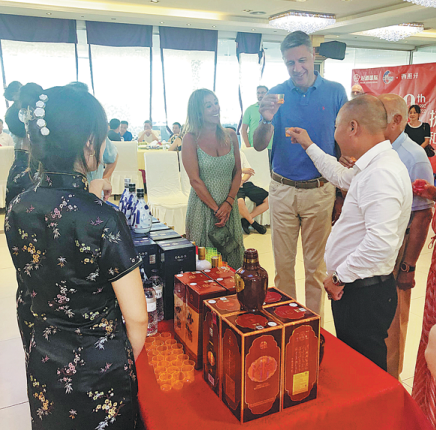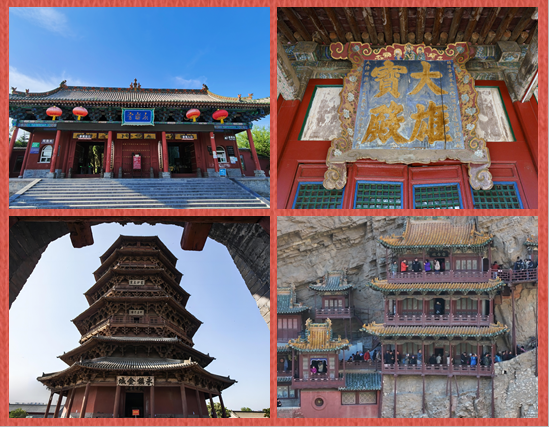Spirit's ancient journey to European countries
Updated: 2022-08-05

Spanish guests taste Fenjiu liquor at an experience event in the city of Valencia. [Photo by Wen Zhaoyan for China Daily]
Renowned white liquor producer Xinghuacun Fenjiu, based in the Shanxi city of Fenyang, hosted a tasting event in the Spanish city of Valencia on July 10.
The day also marked the official launch of the company's white liquor, or baijiu, in the southwestern European country. Huilong International, a Chinese-funded company, was selected as the official dealer for Xinghuacun Fenjiu's products in Spain.
Guests, including officials, business representatives and residents, from Valencia and its neighboring cities attended the event.
The party's menu was a combination of Chinese liquor and Spanish food. Guests were treated to baijiu from Shanxi and Spanish ham and cheese.
Carlos Lopez, mayor of Manises, a city near Valencia, was among those attending. He said he was impressed with the unique taste of Fenjiu liquor but was more interested in the cultural significance of baijiu from Shanxi after he was told its long history.
Xinghuacun Fenjiu is one of the pioneering baijiu companies of China to go global.
After it won a first prize at the Panama Pacific International Exposition in San Francisco, the United States, in 1915, Fenjiu-branded white liquor began to attract the attention of international buyers. Since then, several Fenjiu brands, including Fenjiu and Zhuyeqing, have become popular in overseas markets. The brands were first sold to Southeast Asia and East Asia and then to Europe and the Americas.
But the early 20th century was not the beginning of Fenjiu's globalization. Fenjiu originally refers to baijiu produced in the city of Fenyang where Xinghuacun Fenjiu is located. It became the exclusive brand name of the company in the mid-20th century.
Historical records show that baijiu produced in Fenyang began its international journey in the 18th century with the famed Jinshang, or Shanxi merchants. These businessmen had been trading in Mongolia, Russia and other regions in Europe since the Ming Dynasty (1368-1644).
In European countries, which included Spain, the exported liquor was usually in a bottle that featured a label of the three Chinese characters of Xinghuacun and pictures themed on Chinese legends. Xinghuacun, a town in Fenyang, has been the traditional production base for Fenjiu and is incorporated into the brand name of the liquor company.
Some of these antique bottles are now on exhibit at the British Museum in London, offering evidence for Fenjiu's footprints across Europe.
Zhao Qingyuan contributed to this story.



